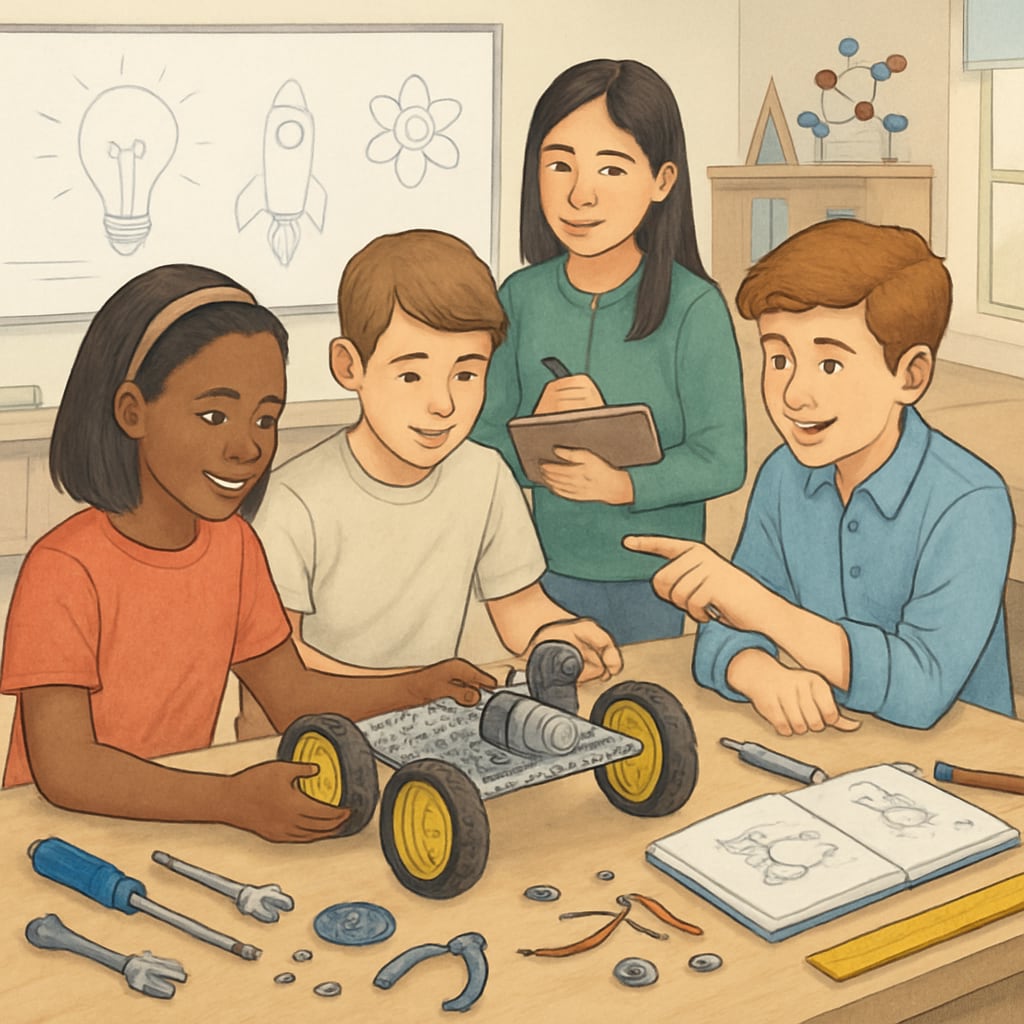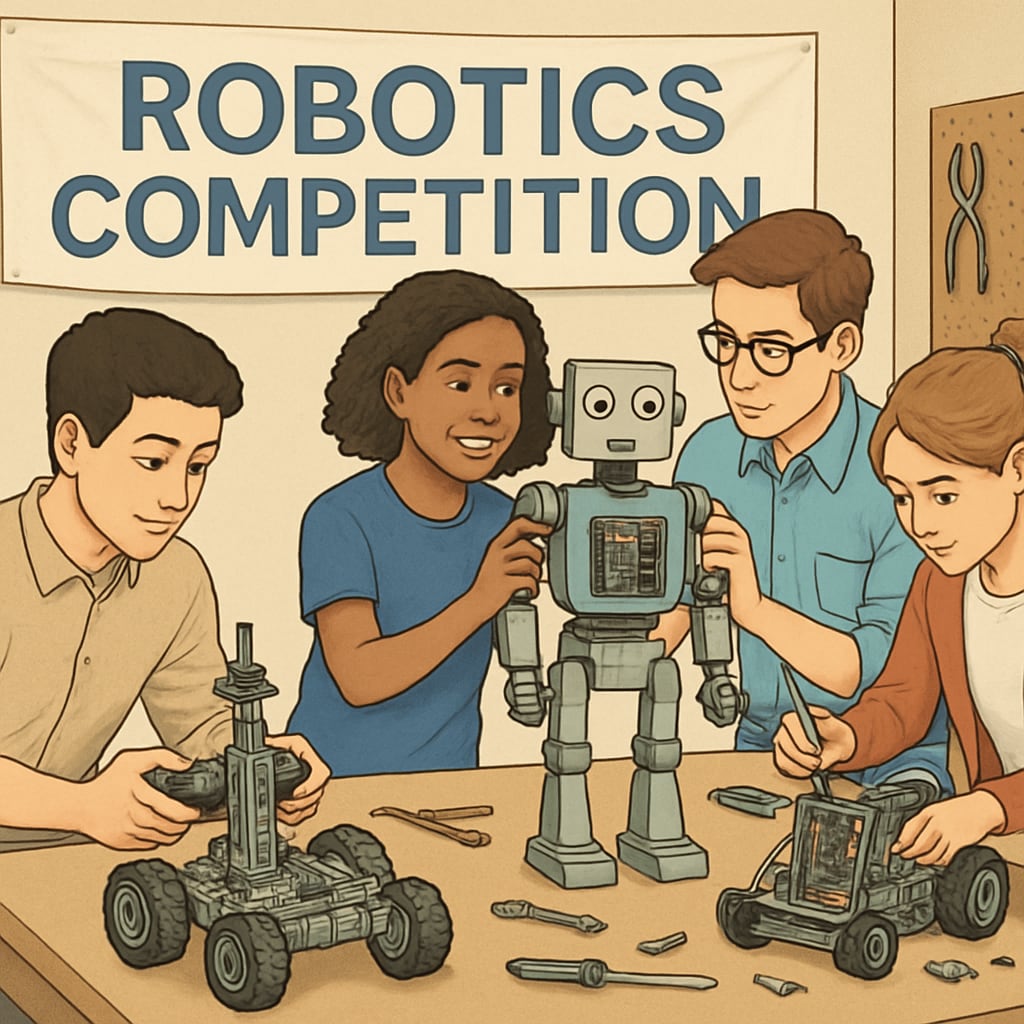In the rapidly evolving fields of design engineering, master’s degree options such as MEng (Master of Engineering) and MSc (Master of Science) play a crucial role in career development. However, the foundation for success in these advanced programs is often laid much earlier—in the K12 education stage. By fostering design and engineering thinking in young minds, students can develop problem-solving skills and innovative approaches that will serve them throughout their academic and professional journeys.
Why K12 Education is Crucial for Design Engineering Readiness
The K12 stage is a critical period for developing cognitive skills, creativity, and a passion for engineering. During this time, students are exposed to foundational STEM (Science, Technology, Engineering, and Mathematics) concepts, which form the building blocks for more advanced studies. For example, hands-on projects like building simple machines or coding basic programs introduce students to the iterative design process and problem-solving frameworks.
In addition, K12 education often incorporates collaborative learning, encouraging students to work in teams—a skill essential for professional success in design engineering. Early exposure to these principles helps students approach challenges with curiosity and a solution-oriented mindset, preparing them for the demands of advanced degrees such as MEng or MSc.

STEM Education and Its Role in Career Development
STEM education is more than a buzzword; it is a comprehensive approach to preparing students for real-world challenges. By integrating STEM into K12 curricula, educators can bridge the gap between theoretical knowledge and practical application. For instance, incorporating robotics competitions or environmental engineering projects can inspire students to pursue careers in design engineering.
These early experiences also influence a student’s later choice of a master’s degree. Whether they opt for an MEng, which focuses on practical engineering applications, or an MSc, which emphasizes research and theoretical approaches, the skills developed during K12 will guide their decision. According to a Britannica article on engineering, fostering analytical and creative thinking early on is essential for successful engineering careers.

Choosing Between MEng and MSc: A Career Perspective
Once students reach the point of selecting a master’s degree, their choice between MEng and MSc can significantly impact their career trajectory. An MEng degree typically focuses on applied engineering practices, making it ideal for students aiming to enter the industry immediately after graduation. On the other hand, an MSc degree emphasizes research and theoretical knowledge, suiting those who wish to pursue academic or specialized research roles.
The decision often depends on the student’s long-term goals. For example, those interested in product design or systems engineering might lean toward an MEng, while those drawn to emerging fields like nanotechnology may prefer an MSc. This choice underscores the importance of early exposure to various engineering disciplines during K12, as it shapes students’ interests and aspirations.
Practical Ways to Cultivate Engineering Thinking in K12
Educators and parents can implement several strategies to nurture design and engineering thinking during the K12 years:
- Project-Based Learning: Encourage students to work on real-world problems, such as designing energy-efficient homes or creating water filtration systems.
- Hands-on Activities: Incorporate activities like building bridges with popsicle sticks or programming simple robots to develop practical skills.
- Mentorship Programs: Connect students with engineering professionals to provide insights into career paths and industry challenges.
- STEM Competitions: Participate in local or national STEM contests to foster innovation and teamwork.
By implementing these approaches, educators can create a pipeline of future engineers who are well-prepared for advanced studies and professional success.
Conclusion: Bridging K12 Education and Career Success
In conclusion, the link between K12 education, design engineering, master’s degree choices, and career development cannot be overstated. By fostering a strong foundation in problem-solving and innovation during the early years, students are better equipped to navigate the challenges of higher education and professional life. Whether they pursue an MEng or MSc, the skills and experiences gained in their formative years will undoubtedly shape their future contributions to the engineering world.
For more on the importance of engineering education, visit STEM education on Wikipedia.
Readability guidance: This article uses short paragraphs, active voice, and transitions to maintain clarity. Lists and examples simplify complex concepts, making the content accessible to a broad audience.


